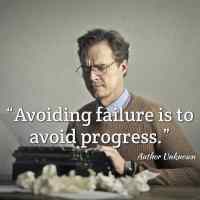Most useful textbook and academic posts of the week: June 26, 2020
 Just “shut up and write”. Right? It seems simple to be a writer, until you realize that it’s not. Writer’s block, editing, reviews and criticism, etc. place barriers in a process that on the surface is quite simple. However, when we stop writing, we stop moving forward. When we blame the culture, environment, timing, or circumstances around us we avoid failure. But, we also avoid progress.
Just “shut up and write”. Right? It seems simple to be a writer, until you realize that it’s not. Writer’s block, editing, reviews and criticism, etc. place barriers in a process that on the surface is quite simple. However, when we stop writing, we stop moving forward. When we blame the culture, environment, timing, or circumstances around us we avoid failure. But, we also avoid progress.
In this week’s collection of articles from around the web, we see a lot of opportunities to avoid progress as well as ways to embrace change and opportunity. How you perceive the content in this collection will determine your continued success as an author. Whether facing changes and challenges related to COVID-19, equity, open access, and accessibility issues or embracing opportunities for marketing, managing your time, grant seeking, and overall success, this collection has something to learn.
Someone once said, “Avoiding failure is to avoid progress.” This week, let’s focus on failing forward together. Happy writing!
How COVID-19 is changing research culture: An interview with Daniel Hook, CEO of Digital Science
We are living in tough times. COVID-19 has fundamentally affected our lives and livelihoods. The death of George Floyd at the hands of Minneapolis police and subsequent outrage is the culmination of a long trajectory of racial injustice and oppression, not just seen in the US, but globally. It is hard to be positive in times like these, and yet hope occasionally shines from many people across the world who are willing to recognize and grapple with these real problems, resulting in a material evolution of how scientific research is done and perceived.
Many writers, especially first-timers, wait until they have finished writing the entire book before they give any thought to the marketing of it. I argue this is backwards—the time to think through the marketing aspect of your book is before you begin writing.
The mental exhaustion from the day’s necessary activities is real, and often entombs our desire to write. So, when you have all these activities, all these projects and duties that must be done… how can you find time in that schedule to write?
Using all four cognitive functions as a writer
So many things going on in the world right now—both good and bad. It makes me reflect, not for the first time, on the tremendous gift given to writers in the simple fact that we have a place to put not just our feelings, but every other aspect of our cognitive experiences as humans.
Equity in scholarly publishing: An interview with the Workplace Equity Project
Many readers of The Scholarly Kitchen will already be at least somewhat familiar with the Workplace Equity Survey*, which was carried out during 2018. Susan Spilka, Simone Taylor, and Jeri Wachter, founders of the Workplace Equity Project (WEP), moderated a panel on the survey’s key findings at the SSP’s annual conference in 2018: “Workplace Equity in the Scholarly Publishing Industry—Survey Report and Panel Discussion“. Learned Publishing, the ALPSP journal, has now published these findings in a peer-reviewed article — “Evaluating Equity in Scholarly Publishing” — available open access thanks to ALPSP and the publisher, Wiley.
Effective grant seeking – round-up
When I was deciding what to list here, I was thinking of a researcher who was applying for their first competitive grant. What might they want to know? What’s the most useful thing to share with them at that stage? Hopefully, some of these hit the mark for you, early career grantseekers!
Springer Nature continues to drive OA with launch of brand new OA journal series
Springer Nature continues to drive the transition to open access (OA) with the launch of a new fully OA journal series. The Discover series introduces a new streamlined OA publishing experience, extending Springer Nature’s commitment to OA by supporting quick access to high quality research to aid the advancement of scientific discovery.
Digital resources for libraries—including digital databases and e-book versions of their print counterparts—have gained in popularity over the past decade and are embraced by general readers as well as educators and learners at all levels of education, from kindergarten through graduate school. With the COVID-19 crisis forcing a rapid shift to remote and distance learning around the world, the issue of the accessibility of digital resources becomes even more prominent.
Interview with award-winning textbook authors
Since many MethodSpace readers aspire to writing books, I wanted to learn more about the authors’ work. Also, given the topics covered in this book, I wanted to glean relevant tips for readers facing career disruption. The authors generously agreed to share insights in this interview.
Please note that all content on this site is copyrighted by the Textbook & Academic Authors Association (TAA). Individual articles may be reposted and/or printed in non-commercial publications provided you include the byline (if applicable), the entire article without alterations, and this copyright notice: “© 2024, Textbook & Academic Authors Association (TAA). Originally published on the TAA Blog, Abstract on [Date, Issue, Number].” A copy of the issue in which the article is reprinted, or a link to the blog or online site, should be mailed to Kim Pawlak P.O. Box 337, Cochrane, WI 54622 or Kim.Pawlak @taaonline.net.

